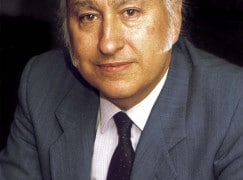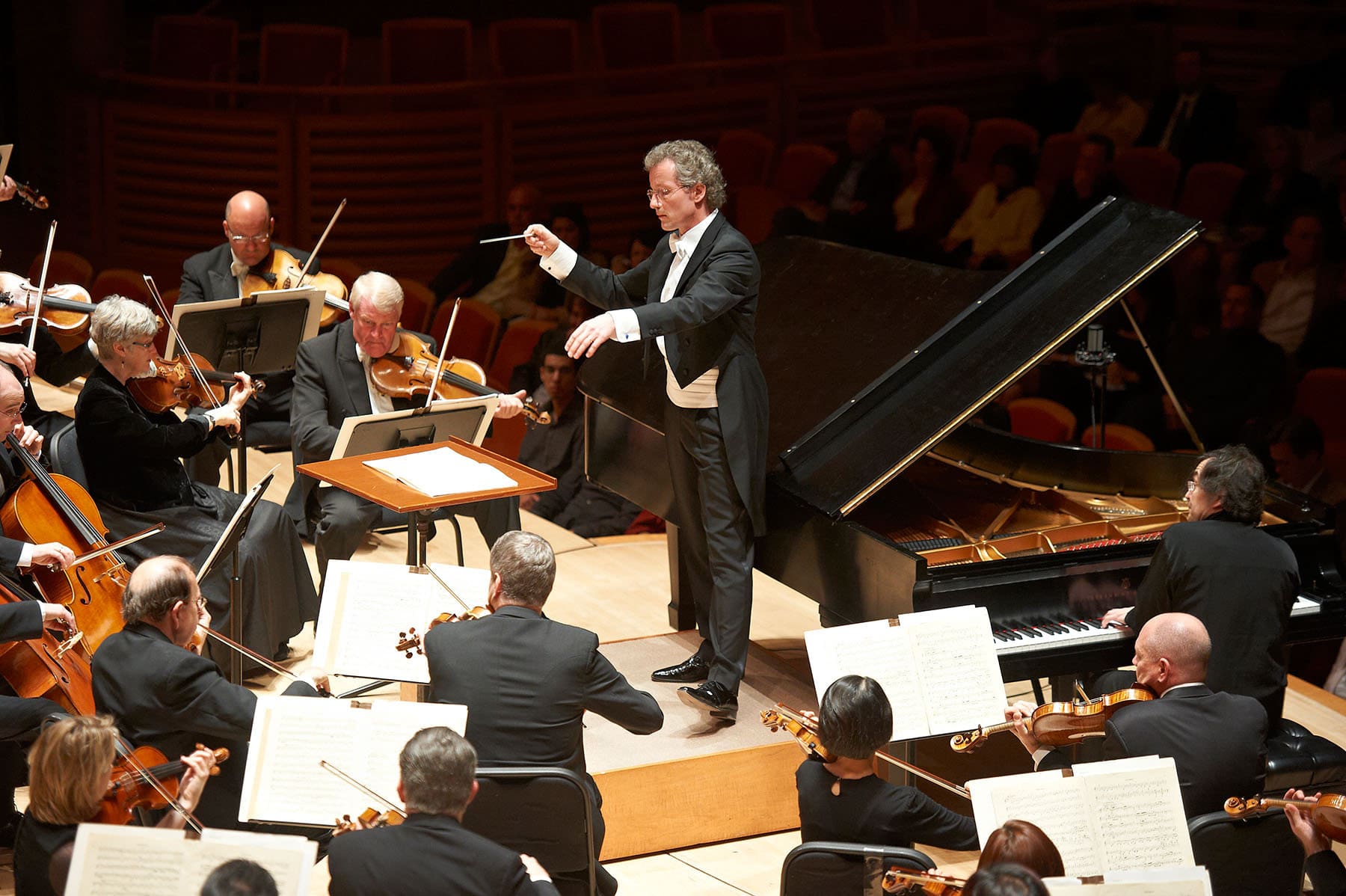How Brian Couzens twice saved the record business
mainIn the late 1970s, classical recording was in the doldrums. The same old conductors were re-recording the same old works, issued on LPs that were so faulty the customer return rate was over 40 percent.
In November 1979, a father-and-son team of sound engineers from Essex, Brian and Ralph Couzens, founded Chandos Records. Sound quality was outstanding from the outset and the LP manufacture was vastly superior to the major labels, which were forced to upgrade their product. These differences were soon ironed out by the advent of CD in 1983, but the point was made and widely taken that Chandos stood for genuine high-fidelity values and the industry as a whole was uplifted by its standards.
An early focus on neglected English music – Bax, in particular – won a deep foothold in the home market. Orchestras in Scotland, Ulster and Wales were the label’s workhorses. Neeme Järvi covered vast swathes of repertoire, Mariss Jansons made his name on Chandos.
Brian’s second act of salvation came ten years later. Peter Andry, former head of EMI, had joined Warner with a brief to create a major label overnight. Wielding a multinational chequebook, he hoovered up half a dozen labels – Erato, Teldec, Finlandia, NVC and more. Then he met Brian Couzens, who refused his lavish overtures. So did Ted Perry at Hyperion. The corporate march was halted. Independent recording was saved.
Brian Couzens died on Friday, aged 82. He earned the lasting gratitude of all who love recorded music.

photo: family





Beautiful tribute, Norman. If not for the independents who challenged the future of the recording industry, it was look quite different today. For all of us who have the opportunities to make recordings as such as a living testament of our legacy, we bow our heads in silence to Brian Couzens for his life’s work in the recording industry.
Honor where honor is due, not to diminish the achievements of the founder of a very fine record label, but Chandos hardly uplifted the standards of the “industry as a whole”. Chandos was barely known outside of Britain in those years. Major quality improvements in LP pressing were achieved by DMM Mastering, a procedure that was invented by Teldec in Hamburg/Germany, as far as I know.
Also the “second act of salvation” is described in so much hyperbole, he saved his label, but hardly the whole world. Many independent labels survived and were founded after the fact, regardless of a small business in Essex.
[redacted]
Perhaps as Peter says, it took many to make the indie phenomenon take hold for many new recordings to thrive and succeed. In the US, it was labels like Chandos that we, as young hopeful musicians, looked to for special recordings and the goal for us to continue pushing our dreams to eventually make recordings. Even if not with Chandos or other indie labels, these record execs made it happen for many others.
I remember that many discophiles I knew in Germany cherished the superior quality of those Chandos LP’s and CDs. And for somebody interested in British music it was one if the main sources of new recordings . I particularly cherished their Bax recordings ( fabulous : Vernon Handley’s complete recording ), Richard Hickox with Delius and Moeran and a very special case of an underrated composer was George Dyson , whose Symphony in g minor and his Violinconcerto ( and his glorious Concerto leggiero for piano and orchestra ! ) all were made available in exemplary recordings .
How much Chandos influenced major labels is beyond my expertise but taken into account how small the label really was they were certainly noticed widely amongst collectors and connoisseurs inside and outside the UK.
In its earlier days Chandos gave a platform to the vastly underrated Bryden Thomson, a conductor whom the BBC apparently never thought worthy of a Proms appearance, despite his having held posts with two of their orchestras. For some listeners, myself included, some of his discs are unsurpassed, Elgar 2, Nielsen 6, Arnold Dances. Sadly, he never completed his Walton recording project but he left the first Chandos cycles of Bax and VW. This is not to detract from Hickox and Handley but only to give due recognition to “Jack” Thomson, as Brian Couzens did.
Of course ! I cherish Thomson’s recordings very much .
He was a true Bax pioneer and his Chandos recordings of the Symphonic Variations and the Winter Legends ( with the excellent Margaret Fingerhut ) were among the very first works of Bax I ever heard and they kickstarted my interest not only in Bax but the neglected ocean of British music.
Kenneth Leighton and Hamilton Harty are 2 other composers I discovered through his excellent recordings. I would have loved to hear some Granville Bantock from him….
Unfortunately I never heard him live.
PS above it should read : “Vernon Handley’s complete recording of the 7 symphonies”.
As a survivor of 2 major record labels, I can say with authority that the major labels took no note whatever of the ground-breaking activities of indie labels. Major labels were run by clueless, musically challenged corporate lawyers & MBA’s, who continued to hire the same big-name artists to record the same time-worn repertoire — which is why Chandos, Hyperion, Naxos, and many other indie labels were able to thrive through their creativity, and are therefore still in existence today.
Well said. Chandos recording quality is and was legendary. R.I.P Brian
The BBC Proms database shows that in fact Bryden Thomas conducted 13 proms between 1970 and 1990.
Thanks for the correction, Matthew; I’m glad that I was wrong about that. Your spell checker seems to have a mind of its own i.e. Thomas for Thomson.
I have a large number of Chandos CDs in my collection, including a recording they did with the Enfield Salvation Army Band. The sound is always vibrant and exciting. And while I may not be hip to the inner machinations of the classical recording industry, Chandos recordings have been a staple of my love of listening for many years. The Jarvi Shostakovich, Prokofiev, and Strauss tone poem cycles with the Scottish National Orchestra are wonderful. The Mahler cycle is also fine. Even as I started reading this thread I was listening to the Thomson Nielsen symphonies on Chandos. Bravo, Mr. Couzens, and thank you.
Having been GM for Chandos in the U.S. in the 1990’s, I frequently had the opportunity to attend recording sessions of the Detroit Symphony with Neeme Jarvi where both Ralph and Brian presided, attending to the most meticulous detail. That rare quality can be heard through the entire Chandos catalogue. A true pioneer who will be missed.
Thanks Brian!